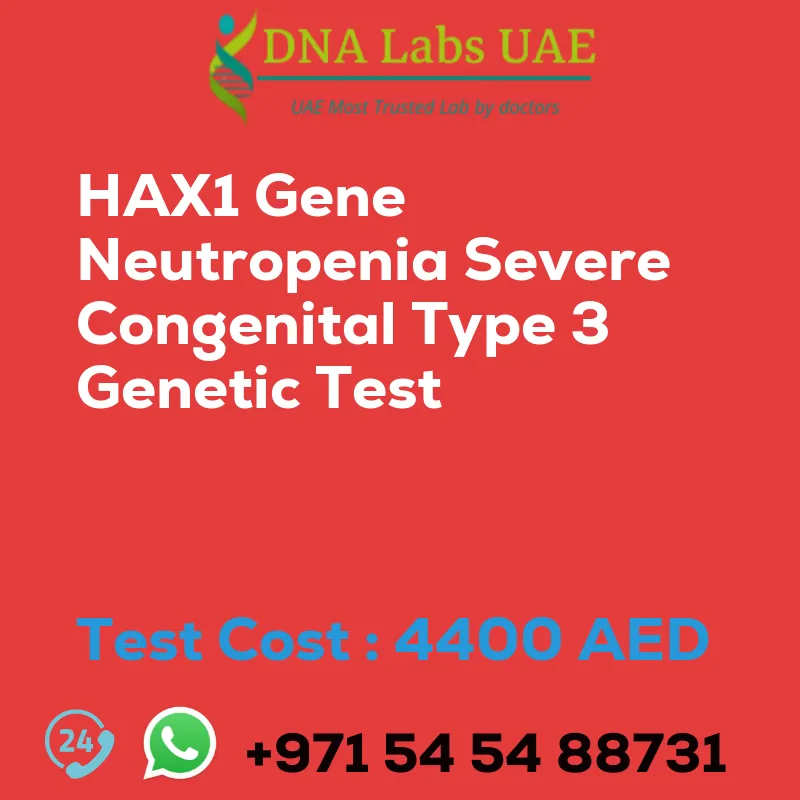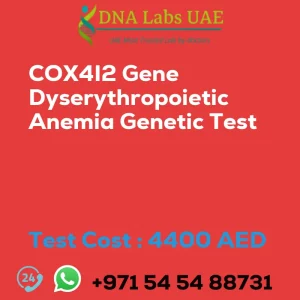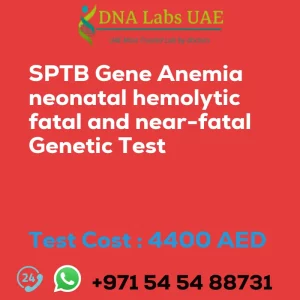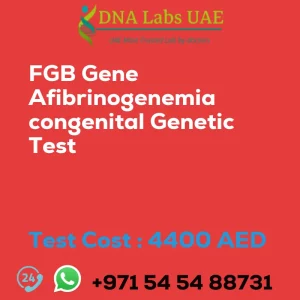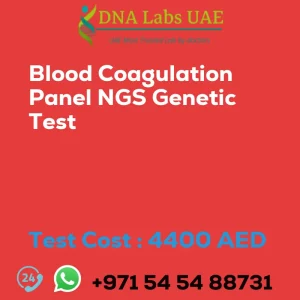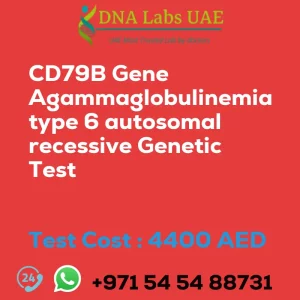HAX1 Gene Neutropenia severe congenital type 3 Genetic Test
Components:
- Price: 4400.0 AED
- Sample Condition: Blood or Extracted DNA or One drop Blood on FTA Card
- Report Delivery: 3 to 4 Weeks
- Method: NGS Technology
- Test type: Hematology
- Doctor: Hematologist
- Test Department: Genetics
Pre Test Information:
Clinical History of Patient who is going for HAX1 Gene Neutropenia, severe congenital type 3 NGS Genetic DNA Test. A Genetic Counselling session to draw a pedigree chart of family members affected with HAX1 Gene Neutropenia, severe congenital type 3 NGS Genetic DNA Test gene HAX1.
Test Details:
The HAX1 gene is responsible for producing a protein called HCLS1-associated protein X-1, which is involved in the regulation of the immune system. Mutations in the HAX1 gene can lead to a rare genetic disorder known as severe congenital neutropenia type 3. Severe congenital neutropenia type 3 is characterized by a severe decrease in the number of neutrophils, a type of white blood cell that plays a crucial role in fighting off infections.
Individuals with this condition are highly susceptible to recurrent and severe bacterial infections, particularly in the respiratory tract, skin, and mucous membranes.
NGS (Next-Generation Sequencing) genetic testing is a type of genetic testing that allows for the simultaneous analysis of multiple genes, including the HAX1 gene. This type of testing can identify specific mutations or variations in the HAX1 gene that are associated with severe congenital neutropenia type 3.
NGS genetic testing can help in confirming a diagnosis of severe congenital neutropenia type 3, especially in cases where the clinical presentation is not clear. It can also be used for carrier testing and prenatal testing in families with a known HAX1 gene mutation.
By identifying the specific genetic mutation causing severe congenital neutropenia type 3, NGS genetic testing can provide valuable information for genetic counseling, management, and treatment options for affected individuals and their families.
| Test Name | HAX1 Gene Neutropenia severe congenital type 3 Genetic Test |
|---|---|
| Components | |
| Price | 4400.0 AED |
| Sample Condition | Blood or Extracted DNA or One drop Blood on FTA Card |
| Report Delivery | 3 to 4 Weeks |
| Method | NGS Technology |
| Test type | Hematology |
| Doctor | Hematologist |
| Test Department: | Genetics |
| Pre Test Information | Clinical History of Patient who is going for HAX1 Gene Neutropenia, severe congenital type 3 NGS Genetic DNA Test. A Genetic Counselling session to draw a pedigree chart of family members affected with HAX1 Gene Neutropenia, severe congenital type 3 NGS Genetic DNA Test gene HAX1 |
| Test Details |
The HAX1 gene is responsible for producing a protein called HCLS1-associated protein X-1, which is involved in the regulation of the immune system. Mutations in the HAX1 gene can lead to a rare genetic disorder known as severe congenital neutropenia type 3. Severe congenital neutropenia type 3 is characterized by a severe decrease in the number of neutrophils, a type of white blood cell that plays a crucial role in fighting off infections. Individuals with this condition are highly susceptible to recurrent and severe bacterial infections, particularly in the respiratory tract, skin, and mucous membranes. NGS (Next-Generation Sequencing) genetic testing is a type of genetic testing that allows for the simultaneous analysis of multiple genes, including the HAX1 gene. This type of testing can identify specific mutations or variations in the HAX1 gene that are associated with severe congenital neutropenia type 3. NGS genetic testing can help in confirming a diagnosis of severe congenital neutropenia type 3, especially in cases where the clinical presentation is not clear. It can also be used for carrier testing and prenatal testing in families with a known HAX1 gene mutation. By identifying the specific genetic mutation causing severe congenital neutropenia type 3, NGS genetic testing can provide valuable information for genetic counseling, management, and treatment options for affected individuals and their families. |

